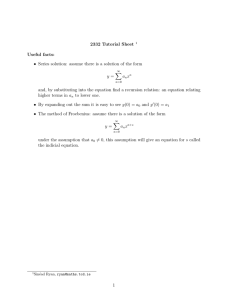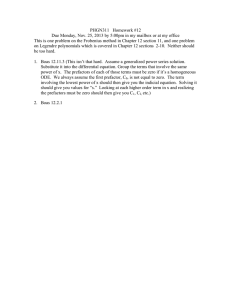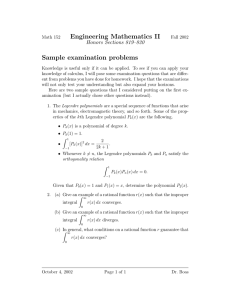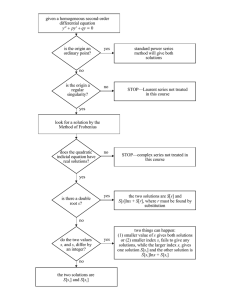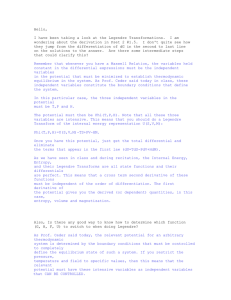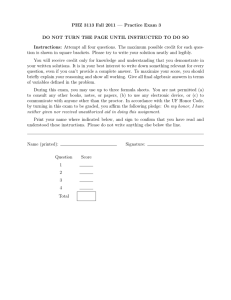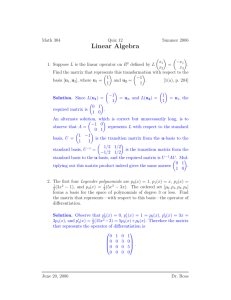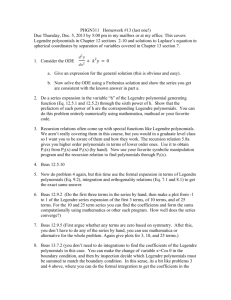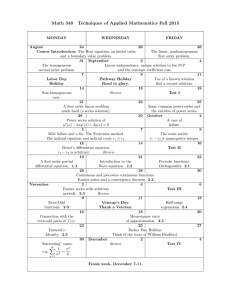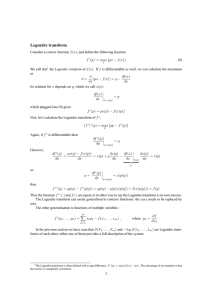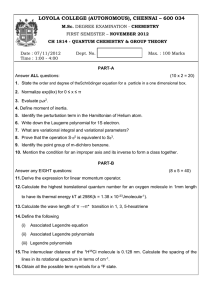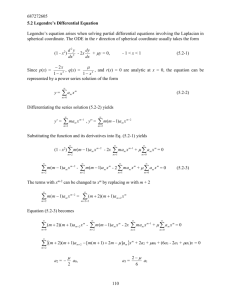MA2332 Tutorial Sheet: due at tutorial on 11th March, 2016
advertisement
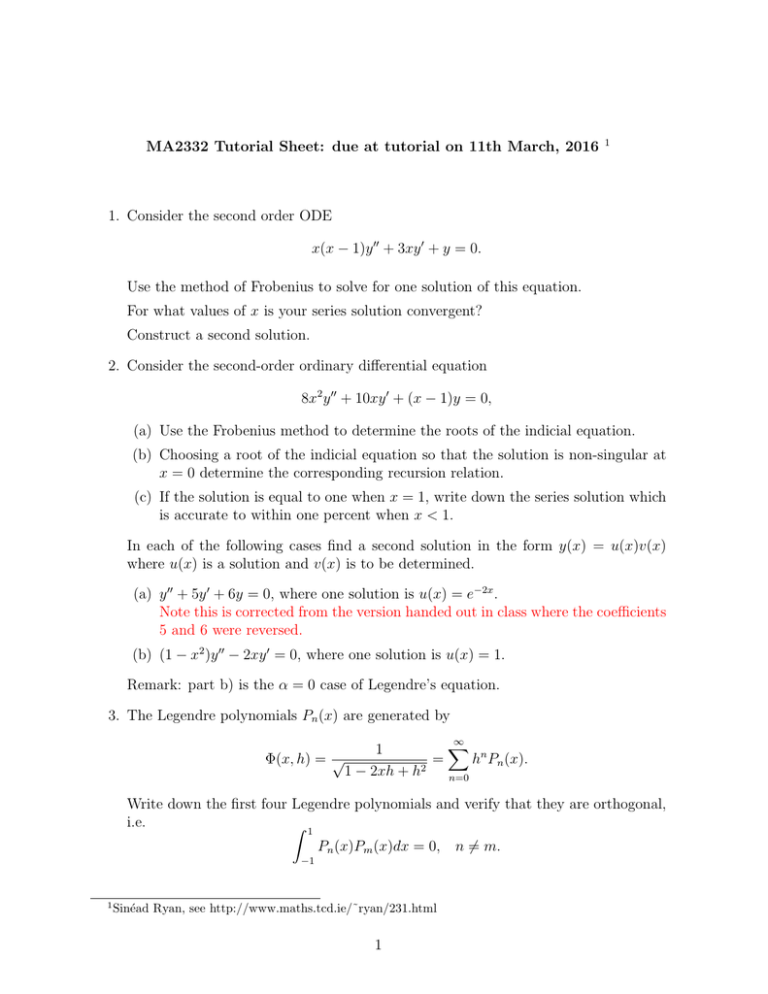
MA2332 Tutorial Sheet: due at tutorial on 11th March, 2016 1 1. Consider the second order ODE x(x − 1)y 00 + 3xy 0 + y = 0. Use the method of Frobenius to solve for one solution of this equation. For what values of x is your series solution convergent? Construct a second solution. 2. Consider the second-order ordinary differential equation 8x2 y 00 + 10xy 0 + (x − 1)y = 0, (a) Use the Frobenius method to determine the roots of the indicial equation. (b) Choosing a root of the indicial equation so that the solution is non-singular at x = 0 determine the corresponding recursion relation. (c) If the solution is equal to one when x = 1, write down the series solution which is accurate to within one percent when x < 1. In each of the following cases find a second solution in the form y(x) = u(x)v(x) where u(x) is a solution and v(x) is to be determined. (a) y 00 + 5y 0 + 6y = 0, where one solution is u(x) = e−2x . Note this is corrected from the version handed out in class where the coefficients 5 and 6 were reversed. (b) (1 − x2 )y 00 − 2xy 0 = 0, where one solution is u(x) = 1. Remark: part b) is the α = 0 case of Legendre’s equation. 3. The Legendre polynomials Pn (x) are generated by ∞ X 1 = hn Pn (x). Φ(x, h) = √ 1 − 2xh + h2 n=0 Write down the first four Legendre polynomials and verify that they are orthogonal, i.e. Z 1 Pn (x)Pm (x)dx = 0, n 6= m. −1 1 Sinéad Ryan, see http://www.maths.tcd.ie/˜ryan/231.html 1
